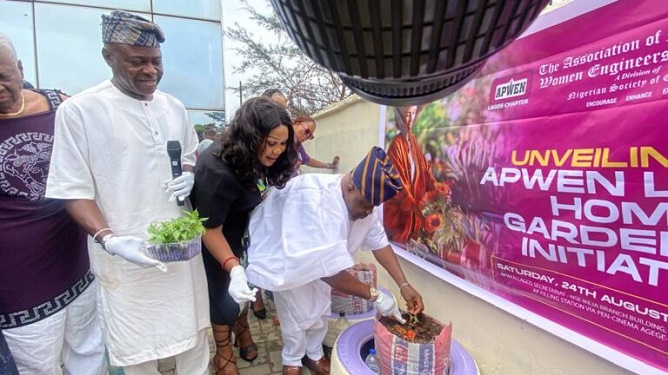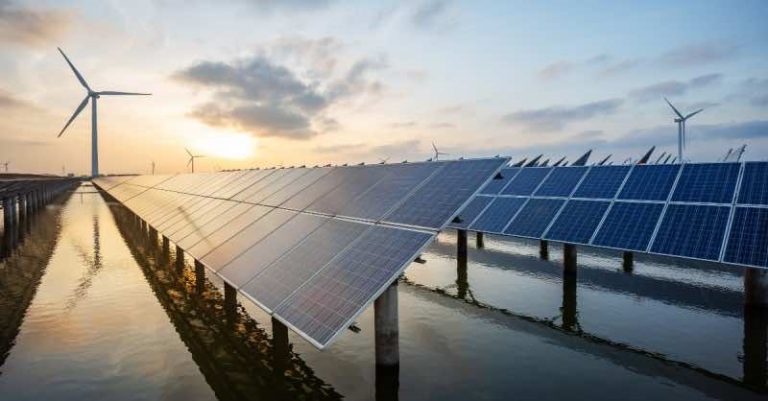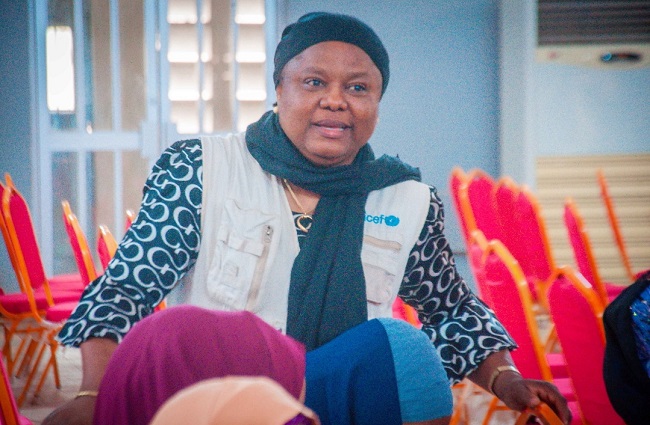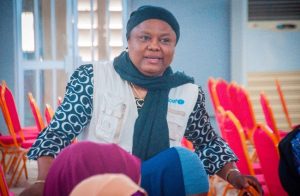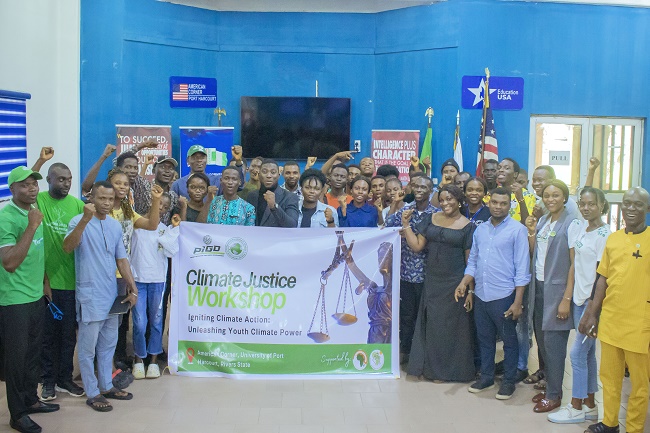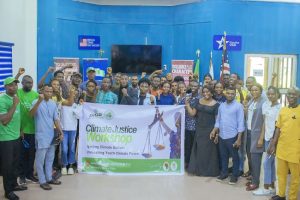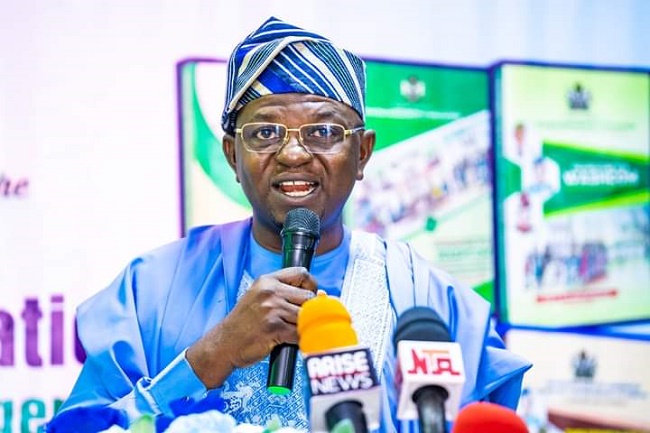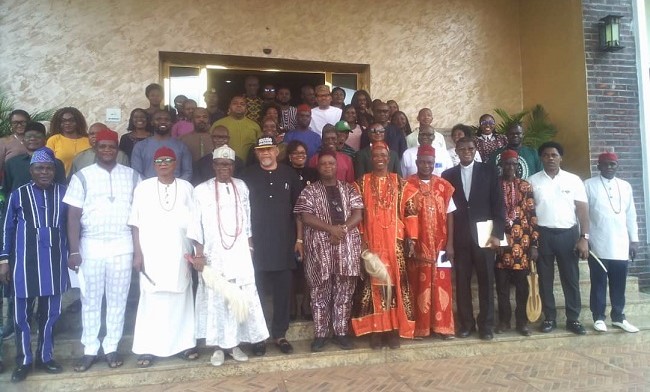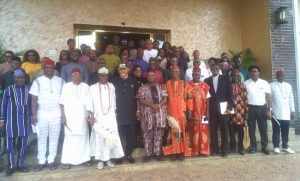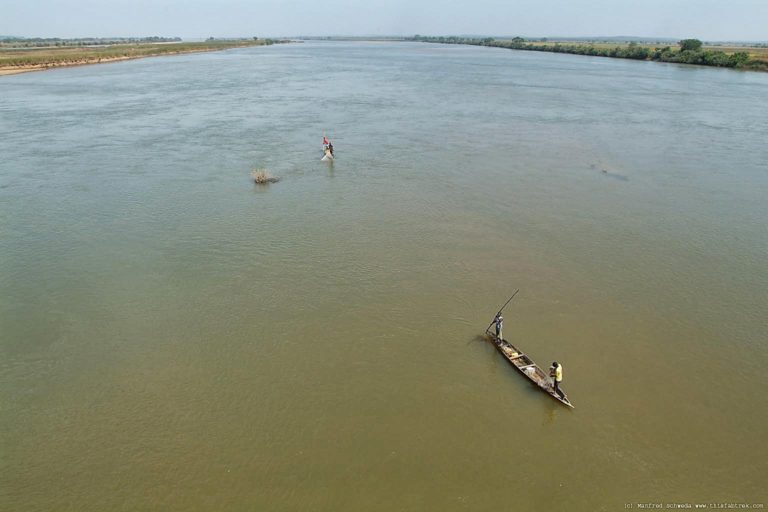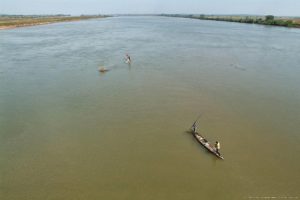The Association of Professional Women Engineers of Nigeria (APWEN) Lagos Chapter, on Saturday, August 24, 2024, unveiled the Lagos Home Gardening Initiative to promote food security in the state and across the nation.
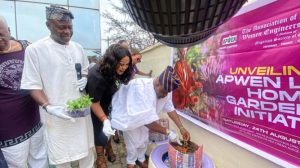
Dr Atinuke Owolabi, Chairperson, APWEN Lagos Chapter, said that the initiative was in alignment with the association’s support for the First Lady of Nigeria, Sen. Oluremi Tinubu’s, “Own a Garden” Competition.
Owolabi said this while delivering an address at the APWEN Lagos Chapter 2024 Public Lecture, Award and Annual General Meeting (AGM) in Lagos.
The theme of the lecture was, “Empowering Nigerian Women Engineers and Communities to Promote Sustainable Agricultural Solutions and Food Security in Nigeria”.
She explained that the initiative was developed to promote essential skills for practical home gardening, focusing on empowering women engineers and local communities.
“APWEN Lagos Home Gardening Initiative aims to enhance food security, encourage self-sufficiency, and foster environmental sustainability through practical and accessible gardening practices.
“Through this initiative, we seek to build a network of well-informed and skilled individuals who can lead by example and drive positive change in their communities,” she said.
According to her, the home gardening initiative aims to equip individuals and communities with the knowledge and skills needed to establish and maintain home gardens, enhancing food security and promoting sustainable living.
Owolabi added that the programme would provide women engineers with hands-on experience and training in home gardening, integrating this knowledge with their professional skills to foster self-sufficiency and environmental stewardship.
The APWEN chairperson said that the association, through the initiative, would also engage grassroots communities by targeting primary and secondary schools.
She said that the young scholars would be introduced to the benefits of home gardening to create a culture of sustainability from an early age and ensure long-term community impact.
“This year has marked a significant milestone for our chapter. We have made substantial strides in advancing our mission to empower women in engineering and to support our communities.
“Our achievements stand as a testament to the dedication and hard work of each member,” she said.
In his remark, Chairman, Onigbongbo Local Government Area, Oladotun Olakanle, lauded APWEN Lagos for the initiative, noting that insecurity has impacted adversely on food production.
Olakunle urged Nigerian to embrace home gardening initiative in a quest to enhance food production and sustainability, noting that food security is key to food sufficiency.
Guest Speaker, Mufutau Oyelekan, Chief Executive Officer (CEO), Farm Fresh Agricultural Venture, charged APWEN members and other agricultural engineers to develop and design agricultural tools for Nigerian farmers.
Oyelekan, also Chairman of the All Farmers Association of Nigeria (AFAN), Lagos Chapter, expressed worry that the tools presently used in the country are produced from China.
He advised the female engineers to collaborate with fabricators to design the tools and also establish farms individually or as a group, as well as develop agricultural product processors to promote food sufficiency.
The keynote speaker, Prof. Akindele Alonge, Dean, Faculty of Engineering at the University of Uyo, urged the female engineers to confront challenges impeding food sufficiency across the country, while tapping into opportunities in farming.
Alonge is also Past National Chairman of Nigerian Institution of Agricultural Engineers
He said that for the country to attain sufficiency in food, agriculture engineers must promote mechanised farming and leverage digital technology in farming.
He said that they must also build their capacities, network and collaborate with other professionals.
He urged them to participate in policy formation, maximise access to funding, technological equipment, and also take agriculture as a business.
By Rukayat Adeyemi

